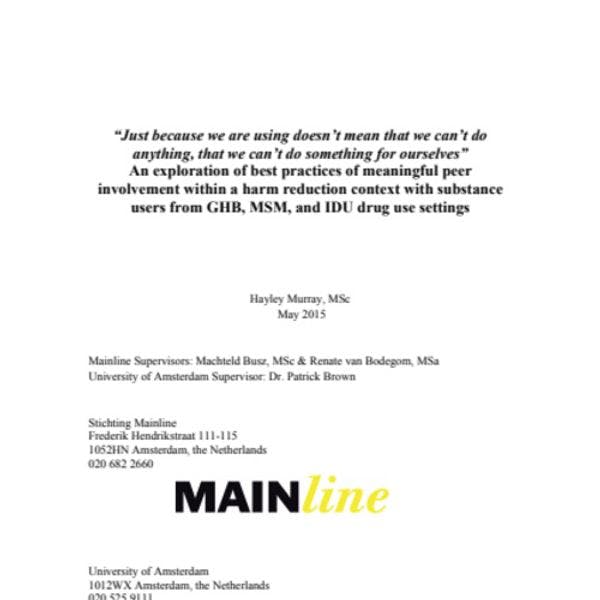An exploration of best practices of meaningful peer involvement within a harm reduction context
Most people would like a greater say in the services they access, whether it be health care, financial, or employment. The same can be said for drug users. This idea reflects the notion that services will be more effective if they have the input and expertise of their users. This is the foundational concept behind peer involvement: have former and current substance users raise awareness and understanding of the physical and psychological harms associated with drug use amongst drug users. Other supporting principles of peer involvement include: equality, self-determination, genuine and meaningful involvement, community development, mutual respect and acceptance. This innovative method caught the attention of UNAIDS, which suggested that, “In order to develop effective, realistic and achievable programmes it is essential for people who use drugs to be involved in planning, influencing and delivering such services.”
Peers can be involved in a variety of ways, such as policy making, programming, researching, educating, peer supporting, campaigning, public speaking, and advocating. Regardless of the level of involvement, the goal is to ensure that representatives of these marginalized groups are directly involved in the services they access and policies that impact them. In his investigation into peer involvement practices in the Dutch context, Trautmann (1995) brought forth some crucial differences in the ways in which peer involvement can be practiced. A central question brought forth by him was the choice between full or partial peer involvement, that is, autonomous self organization or integrated into an existing structure. Embedding peer support in a professional public health agency offers several benefits, such as offering professional support to the substance users involved, and publically recognizing and accepting the expertise of drug users. On the other hand, there are also valid reasons to autonomously organize peers. For example, peers may struggle to conform to or function within a typical working environment. Moreover, the issue of interest would have to be addressed, as perhaps the agenda of the organization and professional staff differs from that of the peer workers.
Mainline shares its experience in involving people who use drugs in the functioning of their work via campaigning, supporting, and advocating.
Keep up-to-date with drug policy developments by subscribing to the IDPC Monthly Alert.
